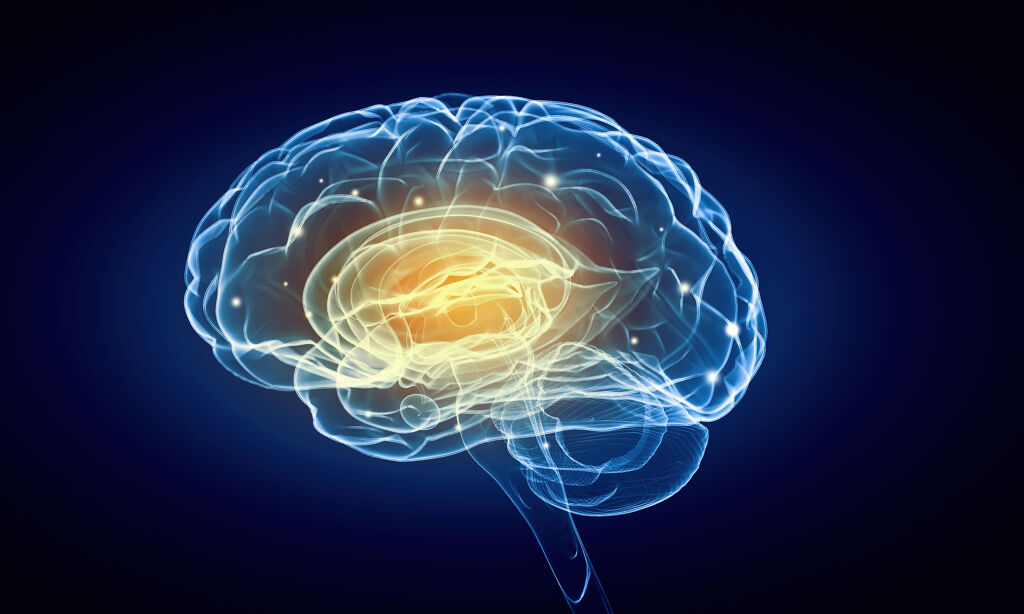Brain Fog

Do you ever have a feeling of foggy or cloudy thinking? Do you sometimes forget important things or make mistakes when you shouldn’t? Maybe you are experiencing brain fog, which is characterized by a lack of clear and focused thinking.
If brain fog is an issue that interferes with your day-to-day life and negatively affects your mental health, then read on for more info and help!
In this blog on brain fog, you will learn:
- What is brain fog and its symptoms
- What are the root causes of brain fog
- How Functional Medicine can help address brain fog
- What solutions are available to reduce or eliminate brain fog
WHAT IS BRAIN FOG?
We’ve probably all heard the term brain fog by now but what exactly does it mean? It is cognitive impairment that feels like a foggy brain. Brain fog can be described as a lack of mental clarity, unfocused thinking, confusion, forgetfulness, difficulty with concentration that feels like foggy or cloudy thinking and mental fatigue. When you have brain fog, you can’t focus, feel sluggish in your head, you might feel exhausted, you forget things and make simple mistakes. Brain fog can feel like being sleep deprived.
Brain fog can range from mild and occasional to severe and persistent. It might happen rarely or it might be a frustrating, even debilitating, part of everyday life. Brain fog can persist for weeks, months or even years.
Brain fog isn’t a formal medical condition. There are no diagnostic criteria or guidelines for diagnosing it. It is a general term for a very real range of cognitive symptoms from lack of mental clarity or memory problems to the inability to focus.
To diagnose brain fog, a doctor will likely conduct a differential diagnosis. This is the process of testing for and ruling out various health conditions that resemble brain fog, in the search for what could be causing the brain fog.
Brain fog is subjective. It is likely that two different people will have different experiences with brain fog. Because of this, we don’t know how common brain fog is, but researchers think it is more common than many clinicians think (Sukel, 2022).
WHAT ARE THE SYMPTOMS Of BRAIN FOG?
Symptoms of brain fog can include:
- Difficulty concentrating, poor concentration
- Feeling confused
- Thinking more slowly than usual
- Lack of focus or fuzzy thoughts
- Mental fatigue
- Forgetfulness
- Difficulty communicating and lost words
If you are suffering from brain fog, you are likely to have trouble multitasking, feel disorganized and have decreased productivity.
NEUROINFLAMMATION & BRAIN FOG
If you have been reading our blog regularly, you will know that chronic low-level inflammation is very damaging to both the brain and body. Chronic inflammation is dangerous to the brain because it can become neuroinflammation, or inflammation in the brain. Neuroinflammation can lead to brain fog and worse (Kverno, 2021).
How does the brain work?
Neurons, or nerve cells, in different regions of the brain communicate and transmit signals to each other. These neurons need to communicate efficiently with each other to process and respond to the environment. This communication is how the brain can focus, perform tasks and think clearly.
Neuroinflammation in the brain affects neurons in the brain. It can damage nerve cells. Cell damage makes it harder for brain cells to send signals to one another.
How does inflammation elsewhere in the body get into the brain?
Chronic or peripheral inflammation can cross the blood-brain barrier (BBB) to create neuroinflammation. The mechanisms of action include:
- Increased inflammatory markers: Inflammatory markers (like IL-1, TNF-α, IL-6) can enter various brain regions. Once in the brain, these inflammatory markers lead to increased cytokine production. Cytokines are small proteins involved in the body’s immune and inflammation responses. These newly produced cytokines help to trigger neuroinflammation (Sun Y, 2022).
- Leaky blood-brain barrier: These inflammatory markers (IL-6, TNF-α, IL-1β) caused by chronic inflammation affect the BBB (Sun Y, 2022). They disrupt the tight junction cells of the BBB which causes the BBB to become permeable or leaky (Sun Y, 2022). This allows unwanted substances to cross the BBB where they can cause neuroinflammation. See our recent blog on leaky brain here.
- Once the BBB is leaky, these inflammatory cytokines and immune cells enter the brain. They create inflammation which can further damage both BBB integrity and the brain (Sun Y, 2022).
- Microglia cell activation: Microglia cells are immune cells of the brain. They can be in either a resting or an activated state. Microglia activation is a key cause of neuroinflammation.
- The inflammatory markers trigger microglia to become activated. Once activated, microglia produce more inflammatory markers. The inflammatory markers (IL-1α, TNF-α) produce neurotoxic molecules and increase free radicals in the brain. This can lead to neuronal cell death and worsen inflammation.
- The gut-brain axis link: The two-way directional relationship of the gut-brain axis means there is always communication between the gut and the brain. Gut inflammation, due to a gut infection, imbalance or other GI issue, can cause neuroinflammation.
CAUSES OF NEUROINFLAMMATION
The causes of neuroinflammation can be mani-fold (Sun Y, 2022):
- Viral infection: See our blog on infection and mental health here. A viral infection can cause cognitive issues. This extends to infection and brain fog. The systemic and chronic inflammation of a viral infection can develop into neuroinflammation. This is one explanation for the brain fog that happens with the COVID-19 virus and in patients suffering from long Covid (Sukel, 2022).
- Autoimmune processes or disease: Autoimmunity is essentially an over-reactive immune response, which is inflammatory. The inflammation created by the autoimmune process can develop into neuroinflammation.
- Other diseases: Issues such as gastrointestinal inflammation, rheumatoid arthritis and chronic fatigue syndrome can trigger neuroinflammation.
- Inflammation from peripheral organs: Peripheral inflammation, like chronic joint pain or gut inflammation from a gut infection or imbalance/ dysbiosis, can develop into chronic inflammation. It can then affect the brain and create neuroinflammation. This can happen through a leaky BBB, the gut-brain axis, increased inflammatory cytokine production, microglia activation or other mechanisms of action that transmit the inflammation into the brain to become neuroinflammation.
- Mental stress: Stress can increase the levels of inflammatory cytokines, which can trigger neuroinflammation. Acute and chronic stress activate the HPA axis to produce stress hormones. These hormones can activate microglia cells and inhibit the activity of immune cells. This leads to an inflammatory response caused by stress hormones (Sun Y, 2022)
- Obesity, type 2 diabetes and metabolic syndrome: Obesity, diabetes and metabolic syndrome are all inflammatory states along the same spectrum. They can all produce reactive oxygen species, increasing oxidative stress and inflammation to cause neuroinflammation (Sun Y, 2022).
- Lifestyle: Diet and unhealthy eating habits can create inflammation, negatively influence the gut microbiome, worsen BBB permeability and lead to neuroinflammation.
- Sleep loss: Poor sleep can cause neuroinflammation (Sun Y, 2022). In sleep loss, neurons in the brain do not have time to recuperate, which negatively impacts their performance in various types of thinking. This can hamper neuronal signaling (Sukel, 2022). Sleep deprivation can influence cognition and memory, increasing susceptibility to neurological disease (Kim JH, 2014).
If you have inflammation elsewhere in the body, it can travel to the brain and develop into neuroinflammation. Basically, anyone can be at risk of neuroinflammation, with or without disease pathology (Sun Y, 2022).
SPECIFIC CAUSES OF BRAIN FOG
We know that neuroinflammation is the cause of brain fog. But it is worth drilling down and listing the specific issues or conditions that can directly cause or contribute to neuroinflammation and the resulting brain fog:
Medical Factors that can cause brain fog:
Medical conditions: Many medical conditions can trigger bouts of mild to extreme brain fog. This is a result of inflammation during illness. Persistent brain fog may be a warning sign or symptom of a health condition, like anxiety, COVID-19, fibromyalgia or Lyme disease. We will not comment on each individual condition here but just list them for info.
To Read About Blog Topic, Scroll Down
Want To Work With Our Clinic?
Do you have a chronic or mystery illness that no one has been able to help you with? Are you simply wanting to re-connect with a healthier version of yourself? It’s Time To Finally Feel Better!
Conditions that can cause brain fog:
- Early-onset cognitive decline/ dementia/ Alzheimer’s disease: Please see our blog for many articles on Alzheimer’s.
- ADHD
- Hay fever
- Cancer and undergoing chemotherapy
- Celiac disease and insensitivity to gluten
- CFS or chronic fatigue syndrome
- Cirrhosis of the liver, typically caused by heavy alcohol use or hepatitis C.
- Covid/ long covid: Brain fog is a commonly reported symptom of long Covid. 10-25% of Covid sufferers develop long covid and brain fog is one of the top three most common symptoms of long covid (Sukel, 2022).
- Fibromyalgia: People with fibromyalgia may experience brain fog, sometimes called ‘fibro fog’.
- Kidney failure
- Autoimmune diseases (lupus, Sjögren’s syndrome, MS): See our blog page for more info on autoimmunity.
- Lyme disease: Please see our blog for many articles on Lyme disease.
- Migraines
- Depression or anxiety
- Sleep disorders
- Hypothyroidism
- Post-viral infection
- Menopause / hormones/ lower estrogen: Fluctuating amounts of estrogen and progesterone can affect cognitive function. Female hormones fluctuate significantly during the menstrual cycle, pregnancy and menopause, possibly causing cognitive difficulties. Brain fog might be known as ‘period brain’ due to PMS or ‘pregnancy brain’ during pregnancy. Menopause and the drop in estrogen can have the same effect on cognition.
- Food allergies or sensitivities: They can cause microglia cell activation, higher levels of inflammatory markers in the brain, neuroinflammation and cognitive impairment like brain fog (Zhou L, 2019). Foods like aspartame, peanuts and dairy may be problematic (Zhou L, 2019). Removing trigger foods from the diet can improve symptoms.
- Metabolic syndrome: Conditions like obesity/overweight, type 2 diabetes, high blood pressure are all inflammatory states associated with metabolic syndrome. The poor blood sugar regulation and inflammation can translate into brain fog as a symptom.
Medications:
Medications can cause brain fog. Chemotherapy typically causes ‘chemo brain’. Other drugs that may make a person foggy include: Benzodiazepines like valium, Antidepressants, Opioids used to reduce pain, Anti-psychotics and mood stabilizers, Anti-seizure drugs, Sleeping aids, antihistamines, sedatives, tranquilizers and more.
Lifestyle Factors that can cause or contribute to brain fog:
- Nutrient deficiencies can develop from a poor diet. Certain vitamin deficiencies may cause brain fog. For example, a vitamin B12 deficiency can cause fatigue, memory problems and confusion. Other vitamin deficiencies that may contribute to brain fog are low vitamin D, iron or omega-3 fatty acids.
- A blood sugar crash may also feel like brain fog. This can happen with a high-sugar diet when blood glucose and blood insulin levels get out of balance. Eat a blood-sugar balancing, low-sugar diet to keep blood sugar levels steady.
- Exercise is followed by an inflammatory response in the body. There is an increase in inflammatory markers produced by immune cells. Intense long exercise can lead to higher levels of inflammatory markers and increase chronic inflammation (Cerqueira E, 2019). Of course, exercise and physical activity has tremendous health benefits and is recommended for everyone. It is simply a matter of not overdoing it, to reap the optimal benefits from exercise. Moderate or even vigorous exercise with appropriate resting periods can provide strong health benefits (Cerqueira E, 2019).
- Poor sleep, as mentioned, can cause neuroinflammation and contribute to brain fog (Sukel, 2022).
- Chronic stress can lead to unfocused or cloudy thinking (Yale Medicine, 2023). Cortisol, triggered by stress, can impair cognitive function and contribute to brain fog.
- Too much screen time is not healthy for the brain. We’re not really relaxing in a restorative way when spacing out on our phones. Technology now makes us feel that we should respond immediately to every message, no matter how urgent or trivial it may be. Endless scrolling, texting and emails add to stress and mental fatigue which can result in brain fog.
- Alcohol use is inflammatory. Even one night of heavy drinking, or persistent drinking, can be inflammatory, lead to nutrient deficiencies, mental fatigue and brain fog.
WHAT IS THE OUTLOOK FOR BRAIN FOG?
Happily, the consensus in research is that brain fog is reversible (Sukel, 2022). There are no exact statistics but studies suggest that if the underlying root cause of brain fog is treated, brain fog will improve within three months (Sukel, 2022). So, if you are suffering from brain fog, it is a good idea to tell your doctor about all of your symptoms and not just brain fog. It is best to treat everything that can be treated.
Both pharmaceutical and non-pharmaceutical solutions can reduce neuroinflammation and improve brain function. Lifestyle changes like sleep, diet and exercise can all help reduce inflammation in the body and brain.
SOLUTIONS TO BRAIN FOG
Diet: Eating a variety of nutrient-dense foods is key for the brain to get all the nutrients it needs to function well. Neuronutrition is nutrition for optimal brain health, cognitive performance and mental well-being.
- Omega 3 fatty acids are one specific nutrient that is necessary for brain health. Omega 3’s have neuroprotective properties. They reduce inflammation in the brain and improve communication between brain cells. Omega 3’s can enhance memory and learning and protect against cognitive decline and depression (which is linked to neuroinflammation). To get Omega 3’s, eat SMASH – sardines, mackerel, anchovies, (wild) salmon and herring. Walnuts, chia seeds and flaxseeds are good plant sources of omega 3 fats.
- Bioflavonoids or flavonoids. Flavonoids can reduce neuroinflammation. They do this by decreasing the production of inflammatory markers, increasing anti-inflammatory molecules and modulating microglia activation (Chen Y, 2022). Flavonoids are found in olive oil, berries, grapes, tomatoes, teas and citrus peels.
- A healthy diet is the best way to get the right neuronutrition for the brain’s requirements (Sukel, 2022). A gluten-free Mediterranean diet is anti-inflammatory. It provides the nutrients needed for optimal brain function.
What not to eat:
Certain foods create inflammation, which can develop into neuroinflammation. These foods will impair brain function and contribute to brain fog:
- Sugar: Excessive refined sugars (sodas, added sugars, ice cream, candies, cake, pastries, etc.) and refined carbs (white bread, white pasta, pizza, cake, cookies) can lead to inflammation and impaired cognitive function.
- Omega 6 polyunsaturated fatty acids: Unhealthy omega 6 fats from industrial seed oils are inflammatory. They are found in vegetable oils like corn, soybean, Mazola, canola, peanut, safflower and sunflower oils. They are even more inflammatory if omega 3 fats (EPA and DHA from fish) are low.
- Ultra processed foods: An inflammatory diet of ultra-processed foods will negatively affect brain and mental health. Ultra-processed foods are industrial foods. They are made of additives, preservatives, emulsifiers, sweeteners, artificial colors and flavors. They contain very little real food.
Lifestyle Factors that support optimal brain function:
- Sleep: Practice good sleep hygiene and get a solid 7-8 hours of sleep per night. Sleep in a cool, dark and quiet room. Avoid screens and bright lights 2 hours, before bed. Keep devices away from the bedside.
- Exercise: Physical activity really is one of the best things for brain health (Sukel, 2022). If you are not already active, then start with a short walk and build up gradually.
- Get the basics right: Stay hydrated, maintain a healthy weight, reduce stress and try meditation, take regular breaks from computer screens during the work day, stop smoking if you smoke, drink very little to no alcohol and do things that bring you joy – for example socializing with friends and family. Limit mindless use of technology like scrolling on social media for entertainment.
Things you might not expect, but that are brain-supportive:
- Sauna use: Regular sauna bathing reduces the incidence of dementia (Kunutsor SK, 2023). It has anti-inflammatory, antioxidant, cytoprotective and stress-reducing properties (Kunutsor SK, 2023). Frequent sauna bathing reduces the adverse effects of systemic inflammation (Kunutsor SK, 2023). People who use the sauna 9-12 times per month were less than 50% likely to develop dementia over the next 20 years vs people who went less than 4 times a month to the sauna (Kunutsor SK, 2023).
- Social network and support: While not directly related to brain fog, loneliness and social network are related to brain health. Numerous studies show that loneliness is associated with accelerated memory aging (Yu X, 2022). Cumulative loneliness is a risk factor for accelerated memory aging. This is especially true among women, more than men, and in people aged 65 and older (Yu X, 2022). Reducing loneliness in mid- to late life may help maintain memory function (Yu X, 2022).
SUMMARY
- Brain fog is a feeling of foggy thinking, lack of mental clarity or confused thinking. It is a general term and can be a symptom of different medical conditions.
- Brain fog really results from neuroinflammation, or inflammation in the brain.
- In this blog, we discuss the physiological reasons for neuroinflammation, like gut issues, inflammation elsewhere in the body, a leaky blood brain barrier and other mechanisms.
- Brain fog can develop as a stand-alone problem with cognitive performance due to medical or lifestyle factors.
- Some medical conditions can cause brain fog, such as viral infections, Lyme disease, mental health issues, sleep problems, food allergies, dementia and quite a few other medical conditions.
- It can be caused by some lifestyle factors like poor diet or nutrient deficiencies. Chronic stress, sleep problems, overexercising or overusing technology can also cause brain fog.
- The solution to brain fog is to get neuroinflammation under control. Get any medical conditions treated. Get the basics right for an anti-inflammatory life: Get gut issues addressed with Functional Medicine, Eat a nutritious anti-inflammatory diet, Get good sleep, Manage stress & mediate, Take technology breaks, Exercise the right amount for you, Try the sauna and Build a good social support network for yourself!
** Follow us for our next Blog on the Functional Medicine approach to Chronic Disease **
As always, please get in touch with us. If you or someone you know is struggling with brain fog, contact our clinic today. We can work on any issue(s) and improve your health. Book a free health evaluation call with us today, to see how we can help you with your concerns. We can answer your questions and help you book an initial consult with one of the functional medicine doctors in our clinic.











